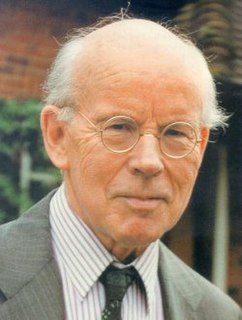Professor Harold Gamsu | |
|---|---|
| Born | Harold Richard Gamsu 23 January 1931 |
| Died | 31 August 2004 (aged 73) |
| Nationality | United Kingdom |
Professor Harold Richard Gamsu FRCP, FRCPCH (1931–2004) was a neonatologist.
Gamsu was born in Windhoek, Namibia, on 23 January 1931. [1] His father, a Russian Jewish émigré, Barnet Isaac Gamsu, was a businessman. [1]

Windhoek is the capital and largest city of the Republic of Namibia. It is located in central Namibia in the Khomas Highland plateau area, at around 1,700 metres (5,600 ft) above sea level, almost exactly at the country's geographical centre. The population of Windhoek in 2011 was 325,858, growing continually due to an influx from all over Namibia.
He attended Windhoek High School, and then studied at the University of Witwatersrand, graduating in 1954. [2]
Windhoek High School (WHS) is a school in Windhoek, the capital of Namibia. Popularly known as The Blue School, it was founded on 5 February 1917 making it one of the oldest schools in the country. Currently, WHS is rated among the top 100 schools in Africa.
He continued training in paediatrics at the University of Sheffield and Cleveland Metropolitan General Hospital. [2]

The University of Sheffield is a public research university in Sheffield, South Yorkshire, England. It received its royal charter in 1905 as successor to the University College of Sheffield, which was established in 1897 by the merger of Sheffield Medical School, Firth College (1879) and Sheffield Technical School (1884).
In 1965 he obtained a position as Wates Fellow at King's College Hospital, and was Reader in Neonatal Paediatrics and Director of the Regional Neonatal Unit there from 1979, and Professor of Neonatology from 1994. Upon his retirement in 1995, he became Emeritus. [2]

King's College Hospital is an acute care facility in Denmark Hill, Camberwell in the London Borough of Lambeth, referred to locally and by staff simply as "King's" or abbreviated internally to "KCH". It is managed by King's College Hospital NHS Foundation Trust. It serves an inner city population of 700,000 in the London boroughs of Southwark and Lambeth, but also serves as a tertiary referral centre in certain specialties to millions of people in southern England. It is a large teaching hospital and is, with Guy's Hospital and St. Thomas' Hospital, the location of King's College London School of Medicine and one of the institutions that comprise the King's Health Partners, an academic health science centre. The interim chief executive is Peter Herring.
Emeritus, in its current usage, is an adjective used to designate a retired professor, pastor, bishop, pope, director, president, prime minister, rabbi, or other person.
He served as honorary secretary of the British Association of Perinatal Medicine from 1980 to 1983. [1]

British Association of Perinatal Medicine known as BAPM, is a charitable organization that was founded in Bristol in 1976 that is most notable for being a pressure group to advance the standards of perinatal care within the United Kingdom by a dedicated core of professional physicians who are accredited by examination.
He died on 31 August 2004. [1]





